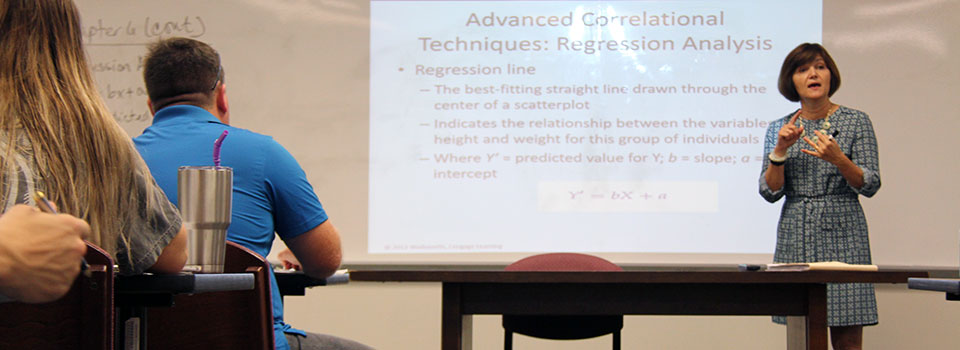
Frequently Asked Questions by Faculty
The office of Disability Support Services coordinates and ensures services and accommodations for registered students with any type of disabilities (including temporary) are provided, as mandated by the Americans with Disabilities Act and Section 504 of the Rehabilitation Act of 1973. These services provide equal educational opportunities to students by minimizing the impact of functional limitations upon their academic and non-academic lives. The office of DSS also helps with guidance and information related to disabilities.
The DSS is the only office on campus that is able to determine appropriate accommodations for students. The decisions regarding the approval of any accommodation(s) are based on documentation provided by the student with a disability/medical condition (including temporary), as well as the student’s functional limitations.
No. It is possible that a student with a disability has chosen not to register with the DSS office, or they may not have met the eligibility criteria in order to receive services.
Students registered with the office of DSS will present you with a current letter of approved accommodations each term. The student may elect which accommodation they would like to use in a given class after discussing the framework of the class with the professor.
If a student has extended time as an accommodation, you must provide the designated extra time delineated on their accommodation letter. If you have any questions regarding this specific accommodation, please contact us and we will be more than happy to assist you.
The office of DSS encourages but does not require registered students to meet with you at the beginning of each semester to discuss their Letter of Accommodations. However, a student can register with the DSS or present their Letter of Accommodations to you at any time during the semester.
No. Documentation stating and describing a student’s disability or medical condition is considered confidential information. However, please call the DSS if you have concerns about a student in your class.
You are only responsible to provide accommodations when a DSS registered student chooses to use their approved accommodations.
The student has ultimate responsibility to make use of the accommodations that have been identified as reasonable. You are not expected to retroactively make adjustments on academic work prior to student use of their accommodations. If they request to use their accommodations, you must provide them the opportunity to do so. You are to provide accommodations from that point on.
Yes. You can contact the DSS to discuss your concerns with the DSS Director.
No. You are not required to provide any requested accommodations unless you have been presented with a current Letter of Accommodations. A student must be registered with the DSS before accommodations can be provided.
No. The standards should be the same for all students. However, students with disabilities may exhibit their knowledge, production of comprehension or mastery of material differently than their peers. Accommodations are designed to address those differences, but the quality of the end result should be the same.
Do not assume that the student’s difficulties are a result of a disability. Talk privately with the student to discuss your observations. If after a thorough discussion with the student, you believe the student may be in need of other assistance, you may refer the student to any of the campus resources that might be appropriate. You can offer options to the student such as the Academic Support Center (which also helps with tutoring), the Counseling Center, as well as the DSS office. If the student discloses that they do have a disability or believe they may have a one, you might suggest that the student contact the DSS to explore options for accommodations.
Provision of accommodations is no guarantee of academic success. The student with a disability has the same right to fail as anyone else and the work produced by the student should be equivalent to his peers.
Helpful Links
Increasing Universal Access by Developing Educational Resources
http://ncdae.org/resources/cheatsheets/ all materials on this site are Copyright © 2007-2019 NCDAE (National Center on Disability and Access to Education). All rights reserved.
This website houses "cheatcheets" on how to create or update your educational content in order to make it accessible.
The National Center on Disability and Access to Education allow for this material to accessed and used at no cost.
Protecting Students With Disabilities
Frequently Asked Questions About Section 504 and the Education of Children with Disabilities https://www2.ed.gov/about/offices/list/ocr/504faq.html
This website and its contents are created and managed by US Department of Education.
ADA Q & A: Section 504 & Postsecondary Education
by Deborah Leuchovius, PACER ADA Specialist
https://www.pacer.org/publications/adaqa/504.asp
PACER is the Minnesota Parent Training and Information Center, funded by the U.S. Department of Education's Office of Special Education Programs.
